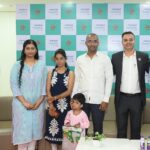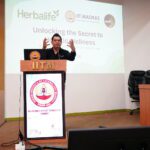“Disease outbreak news: Update”
healthy soch
The rise in number of Ebola virus disease (EVD) cases observed in the North Kivu provinces of the Democratic Republic of the Congo continues this week. During the last 21 days (20 March to 9 April 2019), 57 health areas within 11 health zones reported new cases; 40% of the 141 health areas affected to date (Table 1 and Figure 2). During this period, a total of 207 probable and confirmed cases were reported from Katwa (83), Vuhovi (41), Mandima (29), Beni (21), Butembo (15), Oicha (8), Masereka (4), Lubero (2), Musienene (2), Kalunguta (1), and Mabalako (1).
As of 9 April, a total of 1186 confirmed and probable EVD cases have been reported, of which 751 died (case fatality ratio 63%). Of the 1186 cases with reported age and sex, 57% (675) were female, and 29% (341) were children aged less than 18 years. The number of healthcare workers affected has risen to 87 (7% of total cases), including 31 deaths. To date, a total of 354 EVD patients who received care at Ebola Treatment Centres (ETCs) have been discharged.
WHO Director-General Dr. Tedros Adhanom Ghebreyesus has convened the Emergency Committee for a meeting on 12 April, to consider whether the current EVD outbreak constitutes a public health emergency of international concern and to provide recommendations.
Progress on the ground this week focused primarily on intensifying infection prevention and control (IPC) activities in and around outbreak hotspot areas. IPC teams are concentrating their efforts at addressing reluctance to decontamination activities amongst some local residents by actively engaging in regular direct dialogues with community leaders. Along with intensifying decontamination efforts, other IPC measures being undertaken include rapid evaluation of IPC practices in healthcare facilities and patients’ homes and identifying facilities at increased risk of contact with EVD cases. Results from these rapid evaluations demonstrated a range of IPC gaps depending on the type of facility, which were then promptly addressed through supplementary supervision. Reoccurring issues include limited knowledge of standard precautions, lack of triage and isolation capacity, insufficient supplies (e.g., of personal protective equipment), inappropriate waste management, and lack of capacity for decontaminating medical equipment. These findings highlight the importance of maintaining supportive supervision and mentorship at priority facilities throughout the response. WHO is confident that strengthening these IPC measures would be an integral means of slowing the spread of EVD in the outbreak areas.
WHO and partners in Risk Communication and Community Engagement are continuing with activities to build and maintain a trusting relationship between communities and the Ebola response teams. Dialogues with community committees are ongoing in the hotspot areas of Butembo, Katwa, and Vuhovi, and form a key part of a larger increase ownership of the Ebola response by the communities. Information about community disquiet are systematically collected and monitored to ensure that any misunderstanding leading to reluctance, refusal, or resistance of the Ebola response is followed up with and resolved as quickly as possible. This has been made possible by feedback from the community members, received through ongoing dialogue and various research activities within both the Democratic Republic of the Congo, and neighbouring areas.
In an effort to address the feedback received and specific concerns over the outbreak response, guided visits of the Ebola Treatment Centres (ETCs) in various affected areas have been organized. Students and community associations who attended these guided visits to the ETCs can see first-hand how EVD patients are treated and help stop the potential dissemination of misinformation surrounding EVD and the ongoing response efforts.
The security situation has remained calm for the past week as well. Provisional results released on 9 April by the Commission Électorale Nationale Indépendante concerning the national and provincial legislative elections in Beni, Butembo city (North Kivu), and Yumbi territory (Mai-Ndombe) have caused no significant unrest or disruption to outbreak response activities.
The continued increase in cases this past week reflects the complex reality of conducting an effective outbreak response in a geographically difficult area with a highly fluid population, intermittent attacks by armed groups, and limited healthcare infrastructure. Despite these challenges, WHO and partners remain committed to limiting the spread of EVD amongst these vulnerable populations through the continued strengthening of our multi-faceted response efforts.
Figure 1: Confirmed and probable Ebola virus disease cases by week of illness onset, data as of 9 April 2019*
*Data in recent weeks are subject to delays in case confirmation and reporting, as well as ongoing data cleaning.
Figure 2: Confirmed and probable Ebola virus disease cases by health area, North Kivu and Ituri provinces, Democratic Republic of the Congo, data as of 9 April 2019
Table 1: Confirmed and probable Ebola virus disease cases, and number of health areas affected, by health zone, North Kivu and Ituri provinces, Democratic Republic of the Congo, data as of 9 April 2019**
**Total cases and areas affected based during the last 21 days are based on the initial date of case alert, and may differ from date of confirmation and daily reporting by the Ministry of Health.
healthysoch









